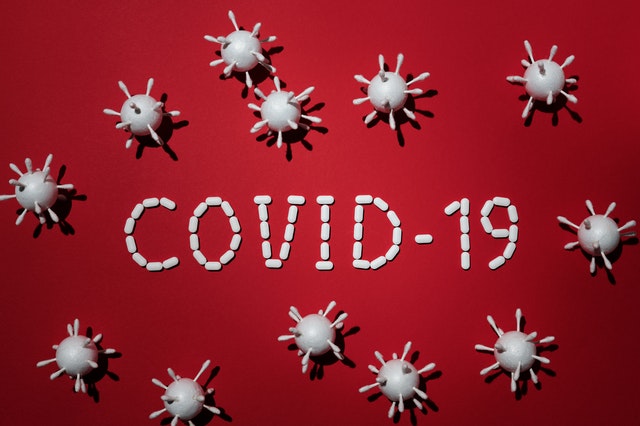As of May 2022, COVID-19 restrictions continue to ease, with reduced mask mandates in public spaces and increased vaccination rates.
So far, approximately 81% of the Canadian population and 66% of the U.S. population are fully vaccinated.1
According to recent studies, these vaccines have significantly reduced the risk of hospitalization and death from SARS-CoV-2 infection.2,3
However, the relationship between vaccination status and the risk of developing long-COVID has not been thoroughly explored.
New data suggest that compared to unvaccinated individuals, fully vaccinated individuals are approximately 60% less likely to experience long-COVID.4
This finding could be significant for members of the public concerned about lifelong implications associated with having COVID-19.
What is long-COVID?
Long-COVID is a long-term condition that can result from SARS-CoV-2 infection.
Individuals with long-COVID have been previously infected with SARS-CoV-2 and continue to experience associated symptoms, usually three months after the initial onset of symptoms.5
Individuals with long-COVID have had symptoms associated with COVID-19 for at least two months with no other plausible explanation.
Symptoms include but are not limited to, fatigue, depression, chest pain, shortness of breath, and muscle pain.
These symptoms can be debilitating and interfere with daily life.
Vaccinated individuals recovered from long-COVID faster than unvaccinated individuals
The study, conducted at Bar-Ilan University and the Ziv, Baruch Padeh, and Galilee Medical Centres in Israel, invited individuals who had tested positive for COVID-19 between March 2020 and November 2021 to participate in a follow-up survey.4
More than 900 individuals who had been infected with SARS-CoV-2 were included in the study, along with 2,437 people who had never been infected.
Participants were asked to describe how often they experience long-COVID symptoms and the nature of these symptoms.
For this study, the term “fully vaccinated” referred to individuals who received two or more doses of a COVID-19 vaccine, while “partially vaccinated” referred to individuals with one dose.
Of the 951 infected individuals, 340 had a single dose and 294 had at least two doses of a COVID-19 vaccine.
Of the individuals who had been infected, the most common symptoms experienced included headache, fatigue, muscle pain, and weakness, at 20%, 22%, 10%, and 13%, respectively.
Vaccinated versus unvaccinated individuals reported differing recovery times.
In particular, the median amount of time between initial infection and the end of long-COVID symptoms was four months and eight months for fully vaccinated and unvaccinated individuals, respectively.
Vaccinated individuals are no more likely than never-infected individuals to develop long-COVID
In terms of the overall long-COVID experience in vaccinated versus unvaccinated individuals, the self-reported symptoms of headache, fatigue, muscle pain, and weakness were compared.
Those who were fully vaccinated were less likely to report each of the aforementioned symptoms than the unvaccinated, by 54%, 64%, 68%, and 57%, respectively.
When comparing those who were fully vaccinated to those who had never been infected with SARS-CoV-2, research supports that those who are fully vaccinated are no more likely than someone never infected to experience any of the mentioned symptoms.
Co-authors of the study summarized the relevance of their findings; “Individuals who had received two doses reported no more of these symptoms than never infected individuals. Our results, therefore, suggest that receiving two doses of COVID-19 vaccine […] brings the incidence of such symptoms back to baseline.”1
Other studies should address study limitations
Although the results are promising, this study is limited in its scope.
One limitation is that the symptoms were self-reported, which may have led to some inaccuracies in symptom reporting.
Another limitation is that most of the infected participants had not had a severe enough infection to be hospitalized.
Thus, it is uncertain whether the results of this study would be applicable to these more severe cases.
Nevertheless, the results send a clear message to the public: getting vaccinated may have the potential to limit long-COVID and achieve full COVID-19 recovery relatively quickly.
References
- Understanding Vaccination Progress. (n.d.). Coronavirus Resource Center, Johns Hopkins University of Medicine. Accessed on May 4, 2022. Retrieved from https://coronavirus.jhu.edu/vaccines/international.
- Lin, D. et al. (2022). Effectiveness of Covid-19 Vaccines over a 9-Month Period in North Carolina. The New England Journal of Medicine; 386: 933-941. Doi: 10.1056/NEJMoa2117128.
- Pilishvili, T. et al. (2021). Effectiveness of mRNA Covid-19 Vaccine among Health Care Personnel. The New England Journal of Medicine; 385: e90. Doi: 10.1056/NEJMoa2106599.
- Kuodi, P. et al. (2022). Association between vaccination status and reported incidence of post-acute COVID-19 symptoms in Israel: a cross-sectional study of patients tested between March 2020 and November 2021. medRxiv. Doi: 10.1101/2022.01.05.22268800.
- World Health Organisation (WHO). (2021). A clinical case definition of post COVID-19 condition by a Delphi consensus, 6 October 2021. WHO. Accessed May 3, 2022. Retrieved from https://pesquisa.bvsalud.org/global-literature-on-novel-coronavirus-2019-ncov/resource/pt/grc-750263.
Photo by Edward Jenner from Pexels



